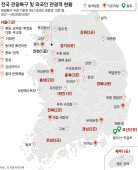Let`s instill our spirit into `comfort women` agreement
Let`s instill our spirit into `comfort women` agreement
Posted January. 07, 2016 11:22,
Dear President Park Geun-hye,
Happy New Year! It has been almost three years since you were sworn in as president. I happened to retire from my job as a journalist in the same period, before taking teaching jobs at South Korean universities in Seoul and Busan. The past three years have been full of precious experiences for me, too, as I have solidified my connection with South Korea.
During the years, the ties between South Korea and Japan were frozen, and I occasionally criticized you in this series of columns. As a journalist, I would like you to continue to forgive my lack of courtesy. At least today, however, I would like to praise your determination.
I am referring to the settlement of the issue of comfort women agreed at the bilateral foreign ministers` talks at the end of last year. Of course, I am not entirely rejoicing. Difficult times may lie ahead, as some of the victims and their supporters are strongly protesting the agreement.
Ideally, the two governments should have reached the agreement after convincing them. However, the issue had become too complicated a political issue. I presume that time pressures also prompted the governments to make the big decision at the risk of protests.
Some may criticize that South Korea has conceded too much. In Japan, however, those who have praised Prime Minister Shinzo Abe for his stubborn attitude on this issue are expressing their disappointment and criticizing him as a "traitor." They have a good reason. For the first time, the Japanese government clearly stated that it feels its "responsibilities." Abe expressed, also for the first time, "heart-felt apologies and self-reflection." Although Tokyo did not use such terms as "legal responsibilities" and "compensations," the Japanese government has promised to commit one billion yen from the state budget as evidence of its responsibilities. Seen from Abe`s perspectives in the past, it would be right to say that he made a surprising change, or rather, an epoch-making progress.
All this was possible because of President Park`s strong determination. In addition to the international community`s persistent pressures on Japan, you strongly urged Abe at a rare summit last fall to resolve the issue before the end of the 50th anniversary of the normalization of the Seoul-Tokyo diplomatic relations. Probably, South Korea also decided to make its part of concessions to reach a "final and irreversible" agreement.
Hearing criticisms toward you, you might be reminded of the roars of "humiliating diplomacy" against your father 50 years ago. At that time, the public outcry was so strong that today`s criticism cannot compare. Nevertheless, your father pushed ahead with normalizing ties with Japan, saying he would leave it up to the posterity`s judgment if he was doing the right thing. Could it not be true that the confidence in the direction and the sense of responsibility for resolving the issue of that time prompted the president to move in that direction?
Unlike his time, however, it is now impossible to block others from expressing their opinions by use of the military or public security forces. Then, what is needed is the power of words and action. Therefore, you should remember you mother, First Lady Yuk Young-soo. She was called the "mother of the state," as she showed great love for people, particularly underprivileged ones, with a broad mind of tolerance.
The most urgent thing right now is to appease the former comfort women. In that respect, your mother`s attitude of visiting any place, be it orphanages or a hospital for lepers, would help. In addition, the foundation to be set up with the one billion yen should maintain the sad memories in the future so that even the diseased victims would rest in peace. I would like support groups to be involved in the foundation to instill spirit into it.
Regarding the "comfort women" statue in front of the Japanese embassy in Seoul, there was no promise of relocating it to another place. Media reports in Japan that Tokyo will contribute the one billion yen on the condition that the statue is moved away. Still, could it be impossible to relocate it to a more appropriate location? If so, Japanese citizens who sympathize with the comfort women`s sorrow will have no qualms praying in front of the statue.
For such a day to come, both the Japanese government and people should say words and make actions that would instill spirit into the agreement. I would like to conclude this message by saying that I am also so determined.
I earnestly wish you good health.
(Written by Yoshibumi Wakamiya, senior fellow of Japan Center for International Exchange and former chief editor of the Asahi Shimbun)
Headline News
- N. Korea redefines S. Korea as ‘hostile state’ in revised constitution
- Samsung develops graphic DRAM with industry-leading capacity and speed
- Three questions allegedly leaked via text message during Yonsei Univ. essay test
- China to inject 340 trillion won in loans to support real estate sector
- Dodgers beat Mets to take 2-1 lead in NLCS







